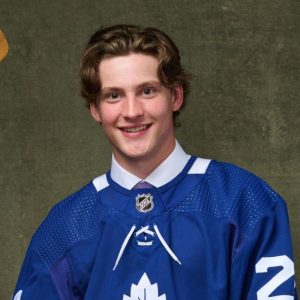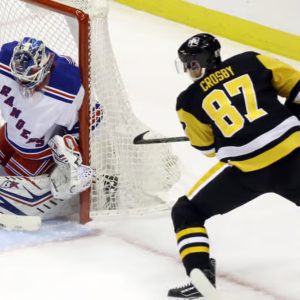
Minnesota Wild general manager Bill Guerin speaks with the media at a press conference announcing his position at Xcel Energy Center on Aug. 22, 2019 in St. Paul.
As a NHL player, Bill Guerin earned more than $50 million over the course of the 20 seasons he skated for a handful of teams. He won the Stanley Cup twice, with New Jersey and later with Pittsburgh, and earned two more NHL titles with the Penguins in the front office before becoming the Minnesota Wild’s general manager in 2019.
Reflective of the era in which he played, Guerin was in his 30s in 2004 when the Dallas Stars signed him to a whopping contract worth nearly $9 million per season. Eight years later, in 2012, the biggest offseason day in Wild history was in early July of that year, when forward Zach Parise and defenseman Ryan Suter came to Minnesota on identical 13-year deals worth $98 million each. When they played their first games in forest green and Iron Range red, Zarise was 28, and Suter was 27.
This week Guerin signed defenseman Brock Faber to a similar megadeal which will pay out $68 million over the course of eight seasons. But there’s one stark difference in the 2024 world of professional hockey. Faber is 21.
“Couldn’t have asked for much better than that.”
🗣️ Fabes on the importance of being close to his family for the next 9 years. pic.twitter.com/x2NQIpyWGK
— Minnesota Wild (@mnwild) July 29, 2024
In announcing the extension, Guerin said that in the modern NHL, handing long-term big money deals to guys that can barely drink legally is the new rule.
“This is a different game now, it’s a different generation, it’s a different way of (doing) business,” Guerin said. “You have to do a lot of work to make sure who you’re identifying as your foundation guys, as a big piece of the puzzle before you commit to them.”
In players like Kirill Kaprizov (27), Matt Boldy (23) and Faber, Guerin pretty obviously sees the foundation for a return to the playoffs and the deep run into May and even June that has thus far eluded this franchise. And in Faber specifically, he saw a first full season with eye-popping numbers in terms of points, games played, time on the ice and other positives that facilitated this lengthy commitment to the curly-haired kid with glasses who wears number 7.

“When I was going through it, it was 10 years (experience) or (age) 31 and then you could sign your big deal. Well, the prime years are behind you,” Guerin said. “I’d much rather have a guy at Brock’s age on an eight-year deal … than a 31-year-old guy. So it makes sense.”
A dozen years ago, a 28-year-old Parise looked to be worth betting big on. He was a star in New Jersey, he was a local kid, and he was aiming to make Minnesota a prime free-agent destination. There were exciting moments, to be sure, and those No. 11 jerseys were everywhere, for a time. But in April and May, the expensive acquisition of Parise and Suter produced two wins in the second round of the playoffs over a combined 18 seasons with them on the roster.

In the seven seasons he played for the Devils before coming home to Minnesota, Parise eclipsed the 30-goal mark five times. Over the next nine seasons he spent with the Wild, Parise scored 30-plus just once. While you are free to debate the merits of the huge contracts former GM Chuck Fletcher handed those two, the numbers say that both players were likely past their prime before they ever visited the Xcel Energy Center’s home locker room. Guerin sees something vastly different in Faber.
“He’s not even really in his prime yet, he’s just played one year, but it was so good,” Guerin said. “He’s shown he’s mature enough to handle it. He’s shown that he’s going to keep getting better. So he’s shown that he’s worth the risk.”

The current GM was also quick to note that Faber isn’t the first budding star that they have invested in for the long haul. While they’re still paying Parise and Suter for another year, in January 2023 the Wild locked up Boldy via a seven-year deal worth $49 million. At the time, his NHL resume was limited, but the Wild braintrust saw a future that they wanted to own.
“That’s a big commitment for a guy that had played something like 85 games,” Guerin said, referencing the Wild’s youthful core. “But they’ve shown something that warrants what they get. There’s something special about what they do. There’s something special about who they are.”
After watching teams from California, Florida, Texas, Nevada, North Carolina, Illinois, Missouri and seemingly everywhere else spend a summer with the Stanley Cup in the past few decades, the hungry Wild fan base can maybe start to feel something special brewing in the State of Hockey. Under Guerin, discarding the old ways and making a commitment to youthful talent is clearly the future.





